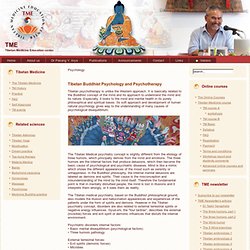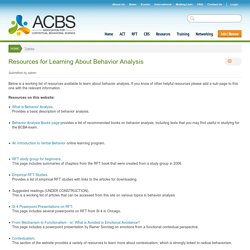

How to Do What You Love. January 2006 To do something well you have to like it.

That idea is not exactly novel. We've got it down to four words: "Do what you love. " But it's not enough just to tell people that. Doing what you love is complicated. The very idea is foreign to what most of us learn as kids. And it did not seem to be an accident. The world then was divided into two groups, grownups and kids. Teachers in particular all seemed to believe implicitly that work was not fun. I'm not saying we should let little kids do whatever they want. Once, when I was about 9 or 10, my father told me I could be whatever I wanted when I grew up, so long as I enjoyed it. Jobs By high school, the prospect of an actual job was on the horizon.
The main reason they all acted as if they enjoyed their work was presumably the upper-middle class convention that you're supposed to. Why is it conventional to pretend to like what you do? What a recipe for alienation. The most dangerous liars can be the kids' own parents. Bounds Notes. The Mystery of Personal Identity: What Makes You and Your Childhood Self the Same Person Despite a Lifetime of Change. Learning Psych. Psychology. Tibetan psychotherapy is unlike the Western approach.

It is basically related to the Buddhist concept of the mind and its approach to understand the mind and its nature. Especially, it looks to the mind and mental health in its purely philosophical and spiritual bases. Its soft approach and development of human natural psychology gives way to the understanding of many causes of psychological disequilibrium. The Tibetan Medical psychiatry concept is slightly different from the etiology of three humors, which principally derives from the mind and emotions. The three humors are the internal factors that produce delusions, which then become the basic cause of psychological and psychiatric diseases.
The Tibetan medical psychiatry, based on the Buddhist philosophical ground, also models the illusion and hallucination appearances and experiences of the patients under the form of spirits and demons. External terrestrial forces:• Evil spirits (demonic forces)• Microbes• Intoxication. EMDR in Psychotherapy - EMDR-Web.org. AIP and the Intersubjective Matrix: Implications for Practice and Training in EMDR Mark Dworkin CSW, LCSW Psychotherapist EMDR Institute Facilitator HAP Trainer EMDRIA Approved Consultant 251 Mercury St.

East Meadow, NY 11554 Fax: 516-579- 0771 Email: Mark@MarkDworkin.com Abstract: Developmental and interpersonal neurobiology and attachment research add the intersubjective dimension to AIP and memory networks both adaptive and dysfunctional. Key Words: Adaptive Information Processing, Intersubjective, Mirror Neurons Adaptive Information Processing and the Intersubjective Matrix: An Elaboration of AIP with Suggestions for Practice and Training Introduction Is it possible to “stay out of the way,” as is taught in EMDR trainings while “the train is moving down the tracks?” The term “intersubjective matrix,” as defined by Daniel Stern, is used in this article to elaborate interactions of adaptive and dysfunctional memory networks between clinician and client. Literature Review.
7 Challenges of Psychotherapy. Every treatment has its downsides.

Medications have side effects and it can often feel like a revolving door trying to find one (or a combination of a few) that work for any particular person. And while medications’ side effects are well-publicized, few articles are written about the potential “side effects” of other types of treatments, such as psychotherapy. Psychotherapy can be a powerful treatment for everything ranging from depression and attention deficit disorder, to anxiety and panic attacks. And while there are many different forms of psychotherapy, virtually all of them share the challenges discussed in this article. 1. Finding the right therapist can be a frustrating hit-or-miss proposition. I recommend people “try out” their therapist, much as one does for a hair stylist or even a blind date. 2. The very nature of one’s relationship with a therapist is a little weird.
Resources for Learning About Behavior Analysis. Printer-friendly version Below is a working list of resources available to learn about behavior analysis.

If you know of other helpful resources please add a sub-page to this one with the relevant information. Behavior Analysis and Learning, Fifth Edition. Association for Contextual Behavioral Science. Printer-friendly version A natural science of behavior that seeks the development of an organized system of empirically-based verbal concepts and rules that allow behavioral phenomena to be predicted and influenced with precision, scope, and depth.

By studying the current and historical context in which behavior evolves, behavior analysts strive to develop analytic concepts and rules that are useful for predicting and changing behavior in a variety of settings. The most well-established behavioral principles of this sort are those related to classical and operant conditioning, such as B. F. Skinner's principles of reinforcement. This contextual approach to studying behavior has resulted in a robust science with many powerful applications in nearly every area of human endeavor.